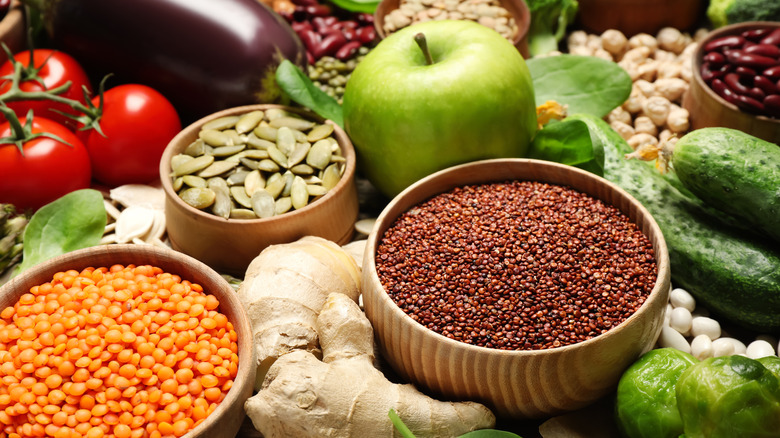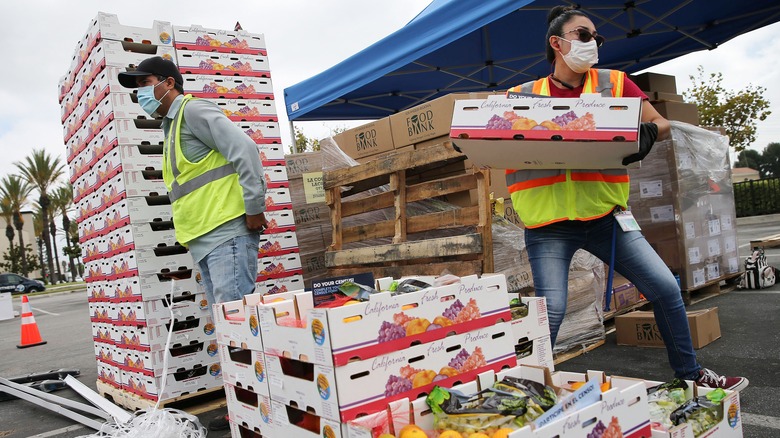How The Global Food Crisis Could Topple Entire Governments
The United Nations Food Price Index started to show signs that prices are finally beginning to drop after a steady climb over the last two years. That means there may be some respite from inflated prices at grocery stores in the near future. But for the countries that are the most affected, it may be too little too late. Across the globe, protests and revolutions are starting to occur and many are related to the price of food and high cost of living seen that these nations are experiencing (via Grid).
This wouldn't be the first time that hunger has overthrown governments. As CNN notes, while the revolutions of 2011's Arab Spring were related to social justice and human rights, the people were also fighting for bread to feed their families. In 2008, Time reported on how food riots in Haiti quickly turned to a toppling of the nation's government. Now, we're seeing similar economic crises change the world once again.
Food insecurity is affecting government trust
The Associated Press reports that a people's revolution in Sri Lanka seems to have successfully ousted its sitting prime minister and president. One of the driving forces behind the civil unrest was food scarcity. According to the United Nations' World Food Programme, currently 22% of Sri Lanka's population as "food-insecure and [requiring] humanitarian assistance." This means that approximately 4.9 million people in the country are not receiving adequate nutrition. The crisis is so severe that government workers were given a four day work week for three months to start growing their own food. This is due to a sudden push for organic farming methods that led to a poor rice crop yield and also the growing global inflation due to the war in Ukraine.
Sri Lanka is not the only nation disrupted by rising food costs. Grid reports that Chile, Iraq, and Tunisia have all experienced recent protests due to the extravagant cost of basic foods recently. CNN Business notes that rising inflation may even change the outcome of upcoming elections. It notes that the gap between French prime minister Emmanuel Macron and his opponent has begun to narrow as Macron struggles to counter inflation while considering food voucher programs.

